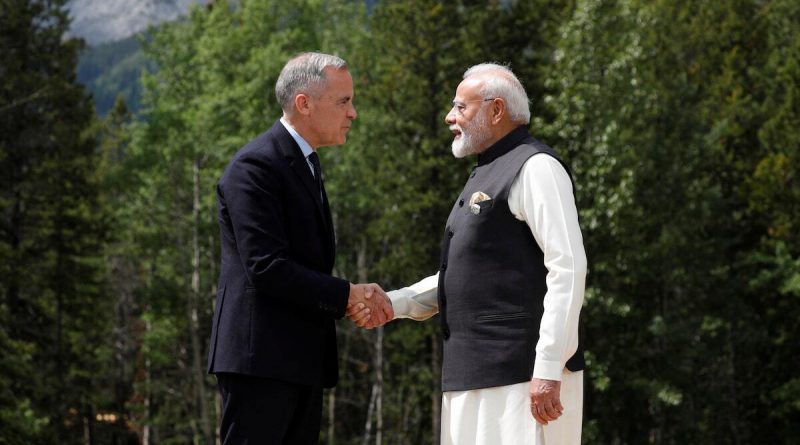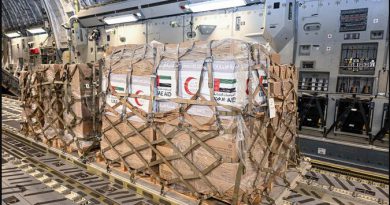India and Canada Forge a Positive New Roadmap for Stronger Bilateral Ties
New Delhi – India and Canada have taken a significant step toward rebuilding and strengthening their diplomatic relationship by agreeing on a new roadmap for cooperation.
The decision, announced after high-level talks between the foreign ministers of both nations in New Delhi, marks the beginning of a renewed phase in bilateral relations following a period of tension.
The new agreement focuses on economic collaboration, technological innovation, and shared growth, reflecting the two countries’ mutual commitment to progress and partnership.
The meeting between India’s External Affairs Minister Subrahmanyam Jaishankar and Canada’s Foreign Minister Anita Anand highlighted a spirit of optimism and forward-looking diplomacy. Both leaders agreed to work together in key areas such as trade, critical minerals, clean energy, education, and agricultural value chains.
The joint statement emphasized that this renewed cooperation aims to not only boost economic engagement but also create resilience against global uncertainties.
“Reviving this partnership will not only create opportunities for enhanced economic cooperation but also help mitigate vulnerabilities arising from shifting global alliances,” the statement read, underscoring a mutual understanding of the evolving global order.
This new roadmap represents an important milestone in bilateral relations, aligning both countries’ strategic interests and long-term economic goals.
Anand, in her remarks, praised India’s role as a crucial partner for Canada in the Indo-Pacific region. “Both of our governments agree on the importance of elevating the relationship,” she said, reaffirming Canada’s intent to foster deeper engagement and collaboration.
Her discussions with Indian Prime Minister Narendra Modi and Jaishankar were described as warm and constructive, focusing on shared values such as democracy, multiculturalism, and sustainable development.
The renewed dialogue comes after nearly two years of strained relations, following allegations made in 2023 regarding the death of Sikh separatist Hardeep Singh Nijjar in Canada. India firmly denied any involvement in the incident, while expressing concern over the activities of certain extremist elements operating from Canadian soil. The new phase of diplomacy signals that both sides are ready to move beyond past misunderstandings and focus on building a future-oriented relationship grounded in mutual respect and cooperation.
The meeting between Prime Ministers Narendra Modi and Mark Carney during the G7 Summit in Kananaskis earlier this year played an instrumental role in restoring trust. Both leaders agreed that stronger engagement in areas like technology, education, and trade could bring tangible benefits to citizens of both nations.
Canada, with its strong academic institutions and technological capabilities, and India, with its vast talent pool and growing market, make natural partners in driving innovation and sustainable development.
Trade diversification remains a top priority for both nations, particularly as they navigate new global economic realities. With rising tariffs and shifting supply chains, India and Canada see value in developing alternative trade routes and exploring new sectors for cooperation.
India continues to be Canada’s largest source of international students and temporary foreign workers, strengthening cultural and educational ties that form the foundation of people-to-people relations. Meanwhile, Canada remains a vital market for Indian exports and agricultural imports, especially pulses such as lentils and yellow peas.
The roadmap also includes collaborative efforts in green energy, digital transformation, and climate action. Both countries are committed to advancing clean technologies and renewable energy partnerships that align with global sustainability goals.
Analysts view this as a mutually beneficial partnership, combining Canada’s expertise in sustainable resource management with India’s expanding energy and manufacturing sectors.
Beyond economics, the renewed partnership carries deep symbolic importance. It represents a shared desire to promote peace, cooperation, and inclusivity on the global stage.
The strong presence of the Indian diaspora in Canada, particularly the vibrant Sikh community, continues to serve as a bridge for cultural understanding and economic collaboration between the two nations.
As both governments turn the page on past challenges, the focus now rests on building a future defined by mutual respect, shared prosperity, and sustainable growth.
The India-Canada roadmap symbolizes not just diplomatic reconciliation, but a powerful commitment to global partnership and collective progress.



